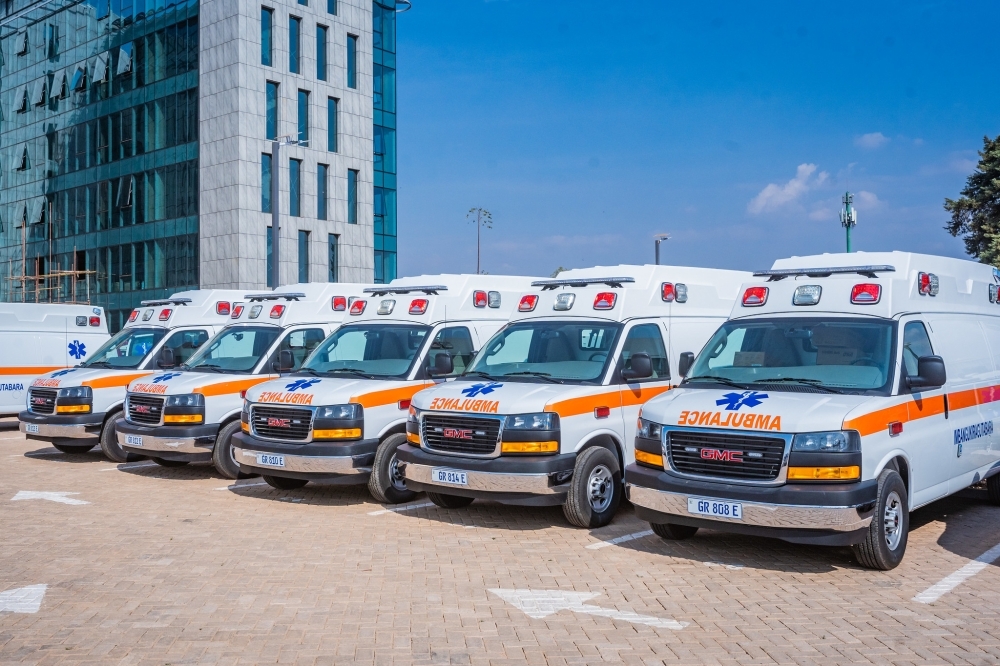

The first meeting of the new Cabinet on Friday, August 23, approved the second National Strategy for Transformation (NST2), which will guide government activities in President Paul Kagame’s five-year term.
The NST2 has five priorities, namely creating decent and productive jobs; boosting exports; enhancing public service delivery; improving the quality of education; and reducing stunting and malnutrition.
ALSO READ: NST1: Rwanda created 1.3m jobs, exports doubled over seven years
The national strategy, which succeeds the seven-year NST1, has 14 goals. Here is a breakdown of the goals.
Goal 1: Modernized agriculture
The agriculture sector will achieve over 6 per cent annual growth, becoming more market-oriented and sustainable.
Productivity will increase by more than 50 per cent, driven by an 85 per cent expansion in irrigated land, increased access to fertilizers and seeds, improved animal breeds, and a boost in domestic production of animal feeds.
GOAL 2: Jobs for all
Up to 1.25 million productive and decent jobs will be created, providing 250,000 new jobs annually.
ALSO READ: NST1: How has Rwanda fared in achieving seven-year plan?
GOAL 3: Open for business
Private investment will be doubled from $2.2 billion in 2023 to $4.6 billion by 2029.
Export levels will increase from $3.5 billion to $7.3 billion, fuelled by non-traditional products, agro-processing, and mining focusing on value addition.
GOAL 4: Made in Rwanda
Rwanda will become a hub for high-quality, locally made goods that will boost the economy and create jobs, driven by significant investments in agriculture, manufacturing, and services.
GOAL 5: Setting solid foundations for education
Pre-primary enrolment will increase from 35 per cent to 65 per cent, reaffirming the country's commitment to promoting early childhood education as the foundation for lifelong learning.
ALSO READ: A look at major education sector accomplishments under NST1
GOAL 6: Developing a market-ready workforce
TVET Centers of Excellence will be established in 8 districts, offering high-demand skills aligned with market needs. These centres will bridge the skills gap, providing Rwandans with the tools they need to secure jobs and drive economic growth.
GOAL 7: Developing skills for the future
One million coders will be equipped, and 500,000 people will be trained in advanced ICT skills.
GOAL 8: Quality healthcare for all
Access to quality healthcare will be increased by quadrupling the number of registered health workers and improving maternal, child, and infant health services.
GOAL 9: Intensifying the fight against malnutrition
Efforts will be intensified to combat malnutrition, aiming to halve stunting rates from 33 per cent to 15 per cent.
GOAL 10: Universal access to clean water and electricity
By 2029, every household, school, and health facility in Rwanda will have access to clean water, sanitation, hygiene services, and reliable electricity.
GOAL 11: Rwanda promote #VisitRwanda
Tourism revenues will nearly double, establishing the country as a top destination for Meetings, Incentives, Conferences, and Exhibitions (MICE) as well as key sporting events.
GOAL 12: No one left behind, a Single Digital ID
A Single Digital ID system will be introduced, revolutionizing access to government services and making it easier and faster for Rwandans to interact with public institutions.
GOAL 13: Universal access to e-government
By 2029, all government services will be fully digitized, enhancing service delivery and accountability.
GOAL 14: Embracing partnerships
Economic diplomacy and international cooperation will be strengthened to secure trade and investment opportunities and elevate Rwanda's global profile to drive shared prosperity.
The Rwandan community aboard will actively contribute to and support national development goals.
Peace and security will be maintained, ensuring a stable environment for Rwanda's continued growth and active engagement of communities.


